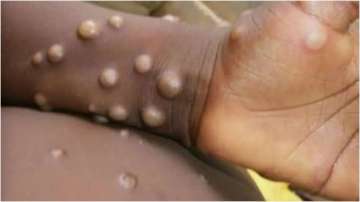Monkeypox scare in India: BMC's guidelines for isolation, management of suspected cases post global outbreak
Monkeypox scare in India is climbing as the rare viral infection is being reported in a number of countries. While no confirmed cases have been found in India, BMC has issued guidelines for isolation and management of the suspected cases.

Monkeypox scare in India: So far no confirmed cases of Monkeypox have been reported in India. However, keeping in mind the safety of Indians, Brihanmumbai Municipal Corporation Public Health Department (BMC) has issued guidelines for the isolation and management of suspected cases of monkeypox. For the unversed, Monkeypox is a rare viral infection that is usually mild and from which most people recover in a few weeks, according to the UK's National Health Service. However, the disease can prove fatal with the strain causing the current outbreak killing one in 100 infected.
People usually pick up the infection in the tropical areas of west and central Africa and can be transmitted by very close contact with an infected person. The virus does not spread easily between people and the risk to the wider public is said to be very low. The disease, which was first found in monkeys, can be transmitted from person to person through close physical contact -- as well as sexual intercourse, Daily Mail reported. There is no specific vaccine for monkeypox, but a smallpox jab offers 85 percent protection since the two viruses are quite similar, BBC reported.
Related | What is Monkeypox? Know how it spreads, symptoms and treatment
Here are some key points about Monkeypox that you should know
- Monkeypox is a viral zoonotic disease that occurs primarily in tropical rainforest areas of Central and West Africa and is occasionally exported to other regions.
- Monkeypox typically presents clinically with fever, rash and swollen lymph nodes and may lead to a range of medical complications.
- Monkeypox is usually a self-limited disease with symptoms lasting from 2 to 4 weeks. Severe cases can occur. Case fatality rate may vary from 1-10%
- Monkeypox can be transmitted from Animal to Humans as well as human to human. The virus enters the body through broken skin (even if not visible), respiratory tract, or mucous membranes (eyes, nose, or mouth).
- Animal-to-human transmission may occur by bite or scratch, bushmeat preparation(Bushmeat is meat from wildlife species) , direct contact with body fluids or lesion material, or indirect contact with lesion material, such as through contaminated bedding.
- Human-to-human transmission is thought to occur primarily through large respiratory droplets generally requiring a prolonged close contact.
- It can also be transmitted through direct contact with body fluids or lesion material, and indirect contact with lesion material, such as through contaminated clothing or linens of an infected person.
- The clinical presentation of monkeypox resembles that of smallpox, a related orthopoxviral infection which was declared eradicated worldwide in 1980. Monkeypox is less contagious than smallpox and causes less severe illness.
- Incubation period is usually 7-14 days but can range from 5-21 days and the person is usually not contagious during this period.
- An infected person may transmit the disease from 1-2 days before appearance of the rash and remain contagious till all the scabs fall off.
Monkeypox cases in the world
Monkeypox non-endemic countries are Australia, Belgium, Canada, Germany, France, Italy, Portugal, Spain, Sweden, U.K., U.S.A.
Monkeypox endemic countries are Benin, Cameroon, the Central African Republic, the Democratic Republic of the Congo, Gabon, Ghana (identified in animals only), Ivory Coast, Liberia, Nigeria, the Republic of the Congo, Sierra Leone, and South Sudan.
Monkeypox cases in India
As of date (23rd May 2022) no suspected or confirm cases of Monkeypox have been reported in Mumbai.
BMC's guidelines for isolation and management of suspected cases of monkeypox
1. Airport authorities are screening the passengers coming from endemic and non-endemic countries showing outbreaks.
2. For isolation of suspected cases separate ward at Kasturba Hospital, ward No. 30 (28 Beds) is prepared, and their testing samples will be sent to NIV Pune laboratory.
3. All Health facilities of Mumbai are being informed to notify and refer any suspected case to Kasturba Hospital...